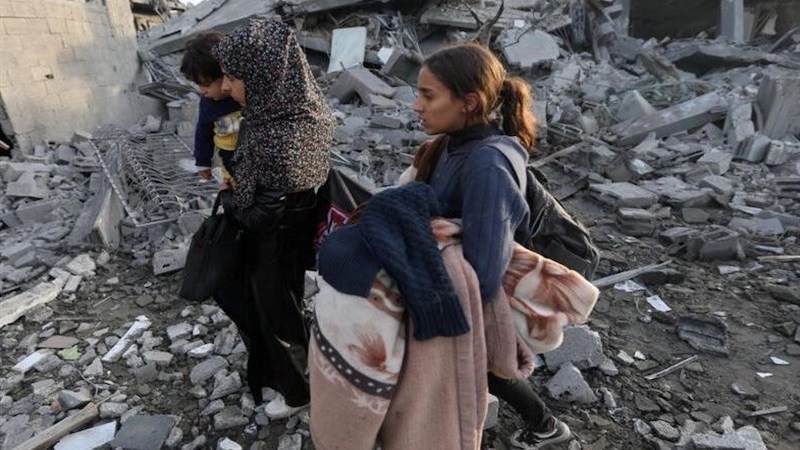
Negotiations to reach a cease-fire in the Israel-Hamas war will resume next week after the head of the Israeli intelligence agency returned from talks in Doha, Israeli Prime Minister Benjamin Netanyahu’s office said Friday.
His office noted gaps still exist between both sides, though, regarding an agreement for a cease-fire and a hostage release.
Mossad Director David Barnea held meetings with Qatari mediators, and Israel said it would resume negotiations as Hamas updated its cease-fire proposal.
A Hamas spokesperson said Friday that amendments it proposed to the U.S. plan for a Gaza cease-fire got a “positive response” from mediators, though they said the Israeli position is not clear.
The White House said Friday that U.S. President Joe Biden likely will meet with Netanyahu when he is in Washington this month.
The cease-fire talks come as Palestinian authorities said seven Palestinians were killed in the West Bank city of Jenin after an Israeli raid that its military said was carrying out “counterterrorism activity.”
Israeli soldiers “encircled a building where terrorists have barricaded themselves in,” and the military noted that an airstrike “struck several armed terrorists” nearby.
Israeli forces and the Lebanon-based militant group Hezbollah traded attacks along the border Thursday, the latest of months of exchanges that have raised fears the war in Gaza will spread to a wider regional conflict.
Hezbollah said it fired more than 200 rockets at Israeli bases in an attack that also included the use of explosive drones. The Iranian-backed group said it was acting in response to Israel’s killing of one of its commanders Wednesday.
The Hezbollah attack prompted air raid sirens across northern Israel. The Israeli military said it intercepted many of the projectiles and carried out fresh airstrikes against launch positions in Lebanon.
Israeli media reported Thursday that Netanyahu spoke with Biden, who has tried to orchestrate a truce for months. Netanyahu told Biden of his decision to send a delegation to continue negotiations for the release of the hostages, according to media reports.
“The President welcomed the Prime Minister’s decision to authorize his negotiators to engage with U.S., Qatari, and Egyptian mediators in an effort to close out the deal,” the White House said in a statement.
The mediators — Qatar, Egypt and the United States — have worked for months to reach a deal that would free the hostages and cease hostilities. The ideas that Hamas delivered this week involve the three-phase deal Biden put on the table in late May.
Meanwhile, the United Nations has expressed concern over Israel’s latest evacuation order for large parts of the Khan Younis and Rafah governorates, encompassing about a third of the Gaza Strip and affecting up to 250,000 civilians.
“What we saw in the last two days, since Monday afternoon when the evacuation order was issued, we have seen a constant flow of people moving out,” said Andrea De Domenico, the head of the U.N. office for humanitarian affairs in the Palestinian territories.
He told reporters in a video briefing from Jerusalem Wednesday that U.N. aid agencies and their partners are having to reset their operations following Israel’s evacuation order.
Israel has repeatedly told Palestinians to leave certain parts of Gaza, usually ahead of military offensives, in a move Israel says is meant to protect civilians from the war. The evacuations, along with the fighting, have meant people have had to flee multiple times in search of safety.
De Domenico said the U.N. estimates that 9 out of every 10 Palestinians in Gaza have been displaced at least once, and some up to 10 times, since the war started between Israel and Hamas in October.
He said most people on the move this week have headed toward the coastal area, where Israel has established a so-called safe zone. De Domenico said the area is overcrowded and overwhelmed, with little clean water, few toilets and limited basic services.
Israel’s war against Hamas in Gaza erupted when Hamas-led militants stormed into southern Israel on October 7, staging a terror attack that killed about 1,200 people and seized more than 250 hostages, mostly civilians, according to Israeli authorities.
Israel’s retaliatory offensive has killed more than 38,000 people and injured more than 87,000 others, according to the health ministry in Gaza, and it has left the densely built-up coastal enclave in ruins.
VOA’s U.N. correspondent Margaret Besheer contributed to this report.
